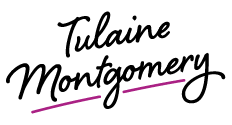S4 E5
Say More with Majora Carter
On this special episode of Say More, which I had the pleasure of co-hosting with my mother Joyce Johnson-Shabazz, we spoke with Majora Carter. Majora is real estate developer, urban revitalization strategy consultant, MacArthur Fellow, and Peabody Award winning broadcaster. As the CEO of the Majora Carter Group, she is responsible for the creation of numerous economic development, technology inclusion and green-infrastructure projects, policies and job training and placement systems. She recently published Reclaiming Your Community: You Don't Have to Move Out of Your Neighborhood to Live in a Better One, which explores the problem of persistent poverty in low-status communities and explains the importance of retaining homegrown talent in creating a strong local economy that can resist gentrification. She is also a lecturer at Princeton University's Keller Center.
In 2017, she launched the Boogie Down Grind Cafe, the first commercial “third space” in the Hunts Point section of the South Bronx since the mid-1980s. This venture celebrates the hip hop diaspora and provides a rare opportunity for local families to invest through SEC approved online investment platforms.
Catch the full episode here or watch below.
We talked to Majora about community development and economic mobility and how important it is to hold a bold vision for the future that is rooted in the realities of today.
Here’s what I’m taking away from our conversation:
Majora explained that in communities like the South Bronx, people are led to believe that you should measure success by how far you get away from the area – that if you’ve got something going for yourself, you’ve got to leave to achieve it. But what would be possible if we built spaces and infrastructure where communities can see themselves thriving?
"Nobody should have to move out of their neighborhood to live in a better one.” - Majora Carter
During our conversation, my mother notes that there is an oftentimes overlooked opportunity to apply our capital in the marketplace in ways that represent us and our families. She reminded us that we have economic power that can be put towards building the communities we want to live in.
“What would happen if we realized that we are the keys to our own economic, social and environmental development and recovery, and really looked at our communities as places that we can make better just because we happen to be in them?”
I was introduced to the powerful concept of “third spaces,” which are spaces that are not where you work or live but enable you to connect, build community and create memories with others. In creating these spaces, we are recognizing that a community is not just a place – it’s an action. If we don’t carve out places to connect with others in our neighborhood, we’re going to seek to do it elsewhere.
“Building third spaces is what we do to help inspire folks to believe that their community is something that could nourish them and love them.”
Majora points to the way that people, philanthropy, government and developers look at communities as if poverty is the only thing that defines them. To combat this mindset, look at your community as a source of value for you and find one thing that either already speaks to you or you can transform into something that supports you and your loved ones.
“People leave our neighborhoods for the nice things all the time and don’t come back. What does that mean for everyone left behind? We are living in places where poverty is assumed and treated as a part of our culture.”
Majora, thank you for lifting up the need to recognize the value inherent within communities that are perceived as low status and sharing and how to create the healthy and wealthy communities we all deserve.
What resonated most with you? Let me know in the comments.
Resources:
Reclaiming Your Community: You Don't Have to Move Out of Your Neighborhood to Live in a Better One by Majora Carter
Majora’s Ted Talk: You don't have to leave your neighborhood to live in a better one
Majora’s Ted Talk: Greening the ghetto
Majora’s Ted Talk: Stories of local eco-entrepreneurship
The Sum of Us: What Racism Costs Everyone and How We Can Prosper Together by Heather McGhee


